Роберт Бюттнер - Orphan's Journey
Здесь есть возможность читать онлайн «Роберт Бюттнер - Orphan's Journey» весь текст электронной книги совершенно бесплатно (целиком полную версию без сокращений). В некоторых случаях можно слушать аудио, скачать через торрент в формате fb2 и присутствует краткое содержание. Жанр: Боевая фантастика, на английском языке. Описание произведения, (предисловие) а так же отзывы посетителей доступны на портале библиотеки ЛибКат.
- Название:Orphan's Journey
- Автор:
- Жанр:
- Год:неизвестен
- ISBN:нет данных
- Рейтинг книги:3 / 5. Голосов: 1
-
Избранное:Добавить в избранное
- Отзывы:
-
Ваша оценка:
- 60
- 1
- 2
- 3
- 4
- 5
Orphan's Journey: краткое содержание, описание и аннотация
Предлагаем к чтению аннотацию, описание, краткое содержание или предисловие (зависит от того, что написал сам автор книги «Orphan's Journey»). Если вы не нашли необходимую информацию о книге — напишите в комментариях, мы постараемся отыскать её.
Orphan's Journey — читать онлайн бесплатно полную книгу (весь текст) целиком
Ниже представлен текст книги, разбитый по страницам. Система сохранения места последней прочитанной страницы, позволяет с удобством читать онлайн бесплатно книгу «Orphan's Journey», без необходимости каждый раз заново искать на чём Вы остановились. Поставьте закладку, и сможете в любой момент перейти на страницу, на которой закончили чтение.
Интервал:
Закладка:
Casus turned in his saddle and faced me as I sat astride Rosy. “We camp here tonight. The ground ahead suits the Tassini mounts, but lames ours. Our fire and smoke will bring Tassini scouts. You’ll continue with them.”
Once Casus threw in with the Alliance, he threw in all the way. He insisted on guiding me to the border personally, but his presence any farther south would have chilled negotiations faster than a High Plains sunset, if it didn’t provoke gunplay.
Casus gazed out to the dunes. “You must win them over. The bastards are good riders and crack shots. Besides, I’m not about to weaken my Clan winning a war while the Tassini conserve their strength, then set upon us later.”
I stared at the sunset. There was no point in telling my new ally that without the Tassini, and probably even with them, there wasn’t going to be a later to conserve for.
Casus hefted a roll of sleeping gear off his saddle, and said, “Now, here is what you must know about the Tassini in order to win them over.”
I nodded. “A Brief.”
Back home, the State Department used to send us off to the Third World with downloads called Nation-in-Brief. A Brief provided up-to-the-minute data on Gross Domestic Product, manufacturing, health clubs, and approved restaurants within walking distance of Western-style hotels, and a graphic of the country’s flag with circles and arrows that explained the flag’s colors and icons. Useful when you were squatting in a tent with a Pashtun warlord who was picking his teeth with a rusty dagger.
Casus held up one finger. “First, you must understand that every Tassini is spit from a whore’s womb, either a thief or a cutthroat.”
I covered my hand with my mouth and coughed. “Any exceptions?”
“None. The cutthroats learn riding and marksmanship, then become raiders. The thieves learn to drink alcohol and smoke janga, then enter politics.”
I nodded. “We have the same system at home.”
Casus furrowed his brow. “Really?”
I knelt on the broken rock, and busied myself with gear so he couldn’t see my face. We unrolled nets woven from groundfruit fiber that wrapped thick wood poles.
Casus said, “You’ll negotiate with the Headman of the Encampment from which the scouts ride. He’ll smoke the janga, then decide. Once you persuade him, he, being a thief, will present your ideas to the Council of One Hundred as his own, and the deal will be done. Quite simple.”
I shook my head. “Simple? I don’t know much about this place.”
Casus disentangled his sleeping apparatus, two wood poles thick enough to support the weight of two male Casuni. These he wedged deep into crevasses in the rock. Between the poles he strung the two nets, like upper and lower bunk hammocks.
He rapped his knuckles on one of the poles. “Janga wood. Worms hate it. Otherwise, if you sleep on the sand—”
“Ah!” I nodded, and repeated what Bassin had taught me. “The screw worms crawl up your ass.”
He grinned. “You see? You know everything about this place already!”
That night, after Casus had told me what else he knew about the Tassini, I swung in the wind in the upper of Casus’s hammocks, and fell asleep with my visor open. I awoke with my nose so cold I thought it would blacken and fall off. Maybe that ancient plague Bassin had described had really been just frostbite, and eight hundred years of Blood Feud had begun with a misunderstanding. That was how little I understood this place.
I snapped my visor shut, chinned up the heat, and stared at a brass-and-crystal hourglass placed on a rock. Casus’s cavalry turned it each hour to mark shift change for the pickets. Casus said hourglasses were Tassini inventions, as were calendars, gunpowder, and poetry. Maybe Casus’s worldview that every Tassini was either a cutthroat or a thief was just slightly biased.
I sighed so hard that I fogged my visor.
Casus thought I knew what I was doing, and I didn’t dare disillusion him. But the truth was I barely understood enough to keep worms off my ass, and Armageddon was rushing at me faster than sand through an hourglass.
I set my jaw.
I would force these disparate allies together by my own sheer will. I set myself an internal deadline of noon, tomorrow, to have them working together.
Blam.
One of our pickets called out, as his pistol shot echoed, “Halt! Or I shoot your purple ass off!”
Crack.
A Tassini long rifle rang.
Bwee.
The round struck rock out on our perimeter, then flashed an orange spark as it ricocheted away.
A distant voice called, “Eat my excrement, you fat ogre!”
I extended my noon deadline.
Rifle and pistol shots crackled like popcorn. I rolled out of my hammock and low-crawled into a crevasse.
FORTY-EIGHT
THE FINAL DAMAGE TALLY for our party’s midnight handshake with the Tassini Scouts of the Twelfth Encampment was two janga wood poles shot in half; one clean, survivable hole through a Casuni shoulder, and a Tassini mount who broke her leg in the fracas and had to be put down.
The Tassini and the Casuni ceased fire to mourn her, then, just after sunrise, I headed south with the Scouts, into the dune sea.
Tassini rode what Howard would call ornithomimes — sand-colored, ostrich-like reptilians half as big as duckbills, but lots faster. Desert-adapted, they store water in fleshy headcrests that wobble as they run, and webs between their toes let them scamper over sand dunes that would have mired Rosy like a mammoth in a tar pit.
The dunes we had to cross actually comprised only a two-mile wide belt that shifted with the seasonal winds, forming the real physiographic barrier that separated the duckbill-riding Casuni from the Tassini.
Six hours later, a Tassini Encampment Headman and I sat across from one another, cross-legged.
He said, as he tamped moist, shredded janga leaves into the gold-filigreed receptacle of a water pipe, “I am told the Ogre Prince and the Bitch have forged a single sword. And have chosen you to wield it.”
We sat together on striped cushions under an indigo canopy. A rising wind billowed the furled tent sides, as it scudded late-afternoon clouds toward us. They scraped low across the scrubland visible behind the encampment’s other thousand tents.
The Headman looked to be seventy, but it was hard to tell because his face was dyed indigo from forehead to jaw. His mahogany skin was visible only where a mustache and goatee would have grown, and the whites of his eyes gleamed against his purple skin like moons in a night sky.
I pounced on his statement. “Momentous events beget momentous responses. Would it please you to know more?”
The Headman’s response itself was momentous, because by it he signaled that his visitor could finally talk business. Company came rarely to the Tassin nomads, and their customs were arranged to savor it, as well as to measure a stranger’s worth.
We had passed four hours discussing my journey; my ancestry; his ancestry; my livestock, which consisted of Rosy; his livestock; whether the approaching storm would bring rain or only sand, and the mystery of how devil-worshiping Marini whores and pimps could produce liqueur so sublime that it would be served in paradise.
Our four-hour chat had been lubricated by smuggled Marini liqueur, poured hot from a tall brass pot into cups the size of a man’s thumb, which my host refilled as fast as I politely drained them.
The Headman lit the janga leaves he had stuffed into the water pipe, striking a flint he held in fingers as gnarled as a janga hammock pole.
In harsh country, from Afghanistan to the Bren Highlands, the few things like janga and groundfruit that didn’t kill you found many uses.
The Headman puffed his cheeks around the ivory mouthpiece of one of the pipe’s hoses, until smoke curled from his lips. “Tell me what you know, then what you want. Each detail. Omit nothing.” Then he lifted the other hose, and held it out to me.
Читать дальшеИнтервал:
Закладка:
Похожие книги на «Orphan's Journey»
Представляем Вашему вниманию похожие книги на «Orphan's Journey» списком для выбора. Мы отобрали схожую по названию и смыслу литературу в надежде предоставить читателям больше вариантов отыскать новые, интересные, ещё непрочитанные произведения.
Обсуждение, отзывы о книге «Orphan's Journey» и просто собственные мнения читателей. Оставьте ваши комментарии, напишите, что Вы думаете о произведении, его смысле или главных героях. Укажите что конкретно понравилось, а что нет, и почему Вы так считаете.

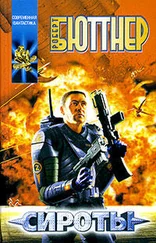

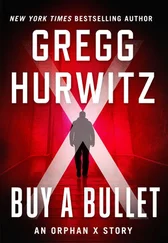
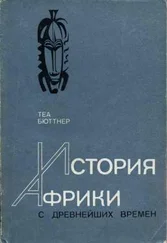

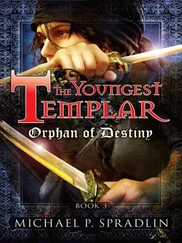
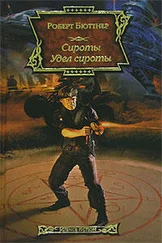
![Дэн Бюттнер - Где живет счастье [Правила жизни самых счастливых людей планеты] [litres]](/books/395574/den-byuttner-gde-zhivet-schaste-pravila-zhizni-samyh-thumb.webp)


